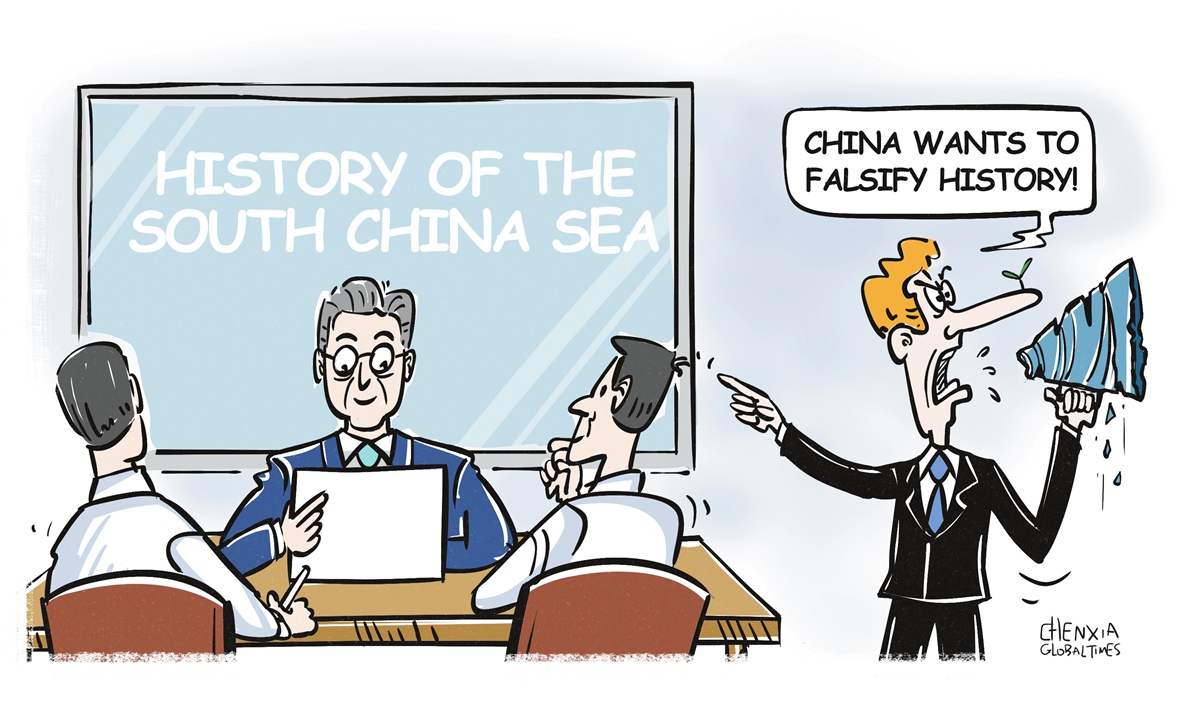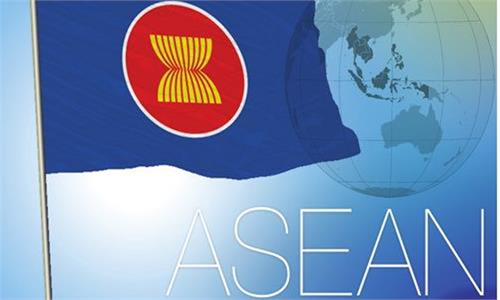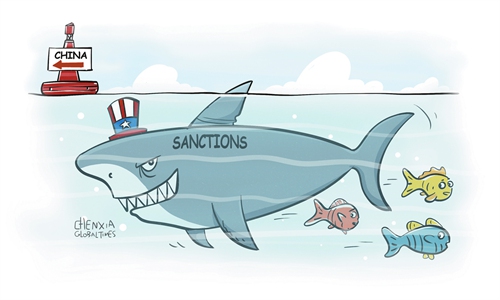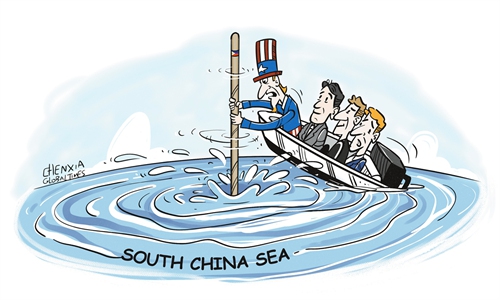
Illustration: Chen Xia/GT
History, especially which is anchored in countless documents, is largely woven from the fabric of undeniable truth. Yet from time to time, some Western voices arise, believing the script of history can be portrayed anew. This is happening in the South China Sea.
On Monday, the Australia-based think tank Lowy Institute published an article titled "China and the South China Sea: Tailoring history for propaganda." It introduced a seminar of Chinese historians and legal experts gathered in Hainan Province at the end of June, and reached a conclusion that "we will witness a form of history warfare as part of China's new propaganda to boost its South China Sea claim." The article said the gathering of Chinese historians should not be underestimated, because it was about "crafting narratives around China's ownership of the South China Sea."
For anyone with a modicum of common sense, seminars of historians are about the pursuit of truth. Yet, lacking any credible explanation, the Lowy article hastily equates the gathering of Chinese historians with the mere "crafting" of historical narratives, even labeling it as the ominous prelude to a "history warfare." Where does this absurd reasoning originate? Could it be that Western historians tend to shape historical narratives when they come together?
Draped in the veil of "history warfare" to manipulate public opinion and challenge the narrative of the South China Sea, these comments expose the institute's staggering ignorance of history and also reveal its palpable fear and helplessness when confronted with undeniable truths.
Why do Chinese historians need to gather for meetings? Because there are indeed some instigators of the "history warfare" at play. The Philippines, the US, and certain Western think tanks that remain steadfastly loyal to US interests are the ones attempting to rewrite South China Sea history for propaganda.
The history of the South China Sea is about how China has established and reaffirmed its sovereignty and rights over the islands and adjacent waters in this region throughout a long historical process. It is clearly stipulated in a white paper titled "China Adheres to the Position of Settling Through Negotiation the Relevant Disputes Between China and the Philippines in the South China Sea," issued in 2016. It explained, with solid historical truth, that China is the first to have discovered, named, and explored and exploited Nanhai Zhudao and relevant waters, and the first to have continuously, peacefully and effectively exercised sovereignty and jurisdiction over them.
The white paper also listed a number of encyclopedias, yearbooks and maps published in many countries after the founding of the People's Republic of China, that mark Nansha Qundao as belonging to China. The countries include the US, Germany, France and Japan.
Anyone who truly studies the history of the South China Sea simply won't deny the truth. Anthony Carty, an Irish scholar, is one such person who has really studied this history. He has looked through British and French archives, spanning from the 1880s until the late 1970s, and found that from all the two countries' records available, "the Chinese were the owners of the Spratlys [the Nansha Islands]," and that this is a legal position certified as part of British Cabinet records in 1974.
Carty also dug out that "there is a record in the mid-1950s in the US National Archive, in which a US under secretary of state says that, while the Filipinos have no claim to the Spratlys [the Nansha Islands], it is in the US interest to encourage them to make a claim anyway to keep Communist China out of the area."
Carty's research addresses the question of who is the one "tailoring history for propaganda." The US, eager to preserve its maritime superpower status, has long cast aside the historical truth and complexities of the South China Sea affairs and forged a tight alliance with the Philippines that fuels instability in the region.
Together, they have not only created waves in the waters, but also denied China's historical claims, spreading their own twisted interpretations of South China Sea history via government officials, think tanks, media outlets, and social media. How do they manage to feel so self-righteous while spinning a version of history that suits their own narrative, and then falsely accuse China of manipulating history for propaganda?
Setting history aside, to whom does South China Sea belong is crystal clear from reality.
Real homeowners are the ones who treasures and safeguards their own property, and it's the intruders who recklessly smash and grab. In the South China Sea, China proactively carried out a wealth of public goods, ranging from meteorological services to environmental protection, transportation upgradation and maritime escort. Meanwhile, what are the US and the Philippines up to? The answer is simple: stirring up conflict and undermining stability, Yang Xiao, deputy director of the Institute of Maritime Strategy Studies, China Institute of Contemporary International Relations, told the Global Times.



